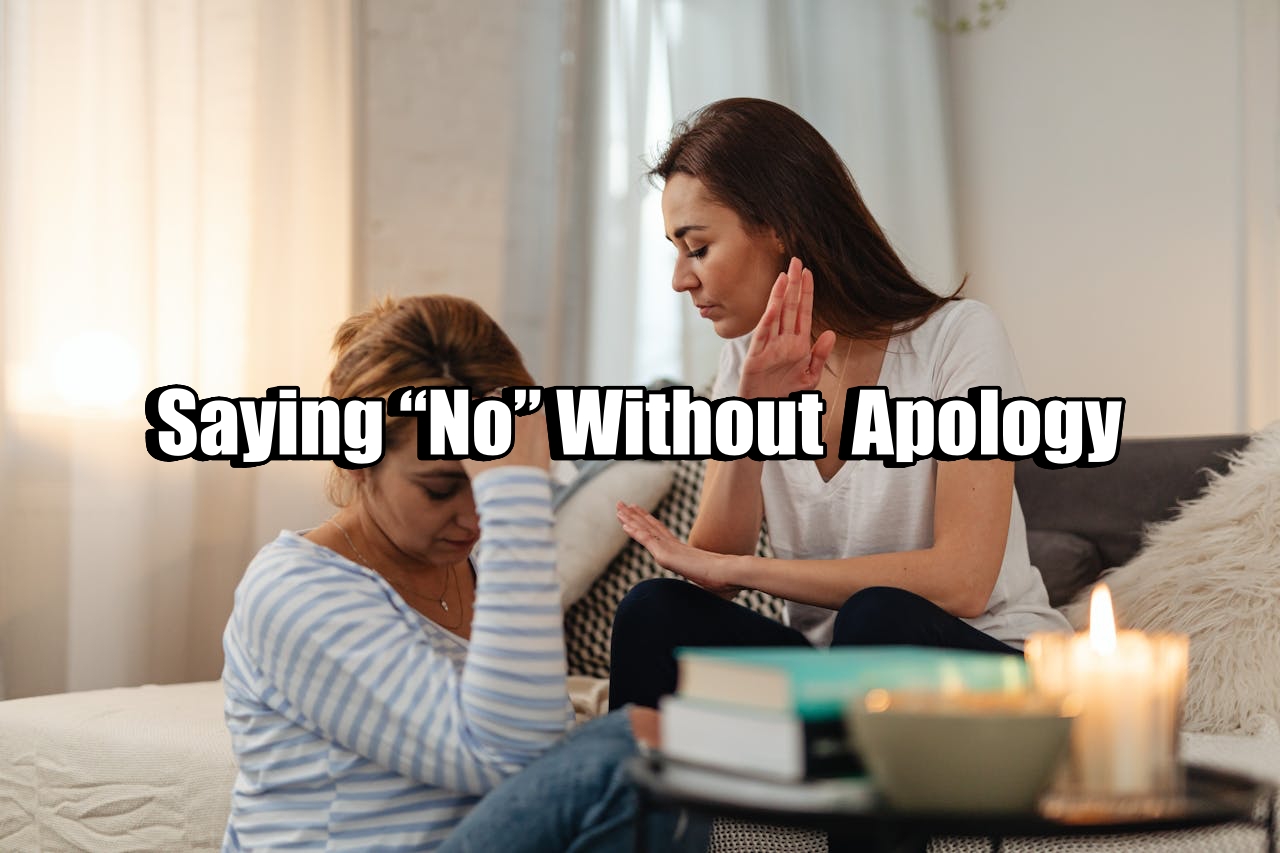Skip to content
Saying “No” Without Apology: The Power of Respectful Boundaries
For many of us, saying no feels uncomfortable—like we’re letting someone down or risking a relationship. We over-explain, apologize excessively, or agree to things that drain our time and energy. But here’s the truth:
👉 Saying “no” isn’t rude. It’s a form of self-respect.
Whether you’re protecting your time, honoring your values, or simply prioritizing what matters most, learning to say no without guilt is one of the most empowering skills you can develop.
🔹 Why We Struggle to Say No
We’re wired for connection. We don’t want to disappoint, offend, or come across as ungrateful. Many of us—especially high achievers, people-pleasers, or those early in their careers—feel pressured to say yes to avoid tension or missed opportunities.
But every “yes” you give without alignment is a “no” to something that may actually matter more: your rest, your focus, your goals, or your peace.
🔹 The Reframe: “No” is a Strategic Choice
Let’s be clear—saying “no” doesn’t make you selfish, difficult, or arrogant. It makes you clear. When you say no with respect and honesty, you:
-
Build stronger, more authentic relationships
-
Set expectations with clarity
-
Create space for what truly matters
-
Avoid burnout and resentment
🔹 How to Say “No” Without Apology
Here are some ways to protect your time and energy without sounding harsh or guilty:
✅ Be direct, not dismissive
“I won’t be able to commit to that right now” is stronger (and kinder) than “Sorry, I’m just so busy…”
✅ Offer context without over-explaining
You don’t need to justify your no with your entire calendar. A brief, respectful explanation is enough.
✅ Use confident language
Try: “That won’t work for me” instead of “I don’t think I can…” Confidence creates clarity.
✅ Give alternatives (if appropriate)
If it’s a no to this, offer support in another way: “I can’t join the event, but I’d be happy to share it.”
✅ Silence the guilt
Not every “no” needs a follow-up. Sometimes, the best boundary is just letting the no stand on its own.
🔹 Final Thought
Every time you say no with clarity and confidence, you say yes to your energy, your priorities, and your purpose. You teach others how to treat you—and you reclaim control over your time.
So stop apologizing for protecting your peace. Your “no” is powerful. Use it wisely—and unapologetically.

No responses yet